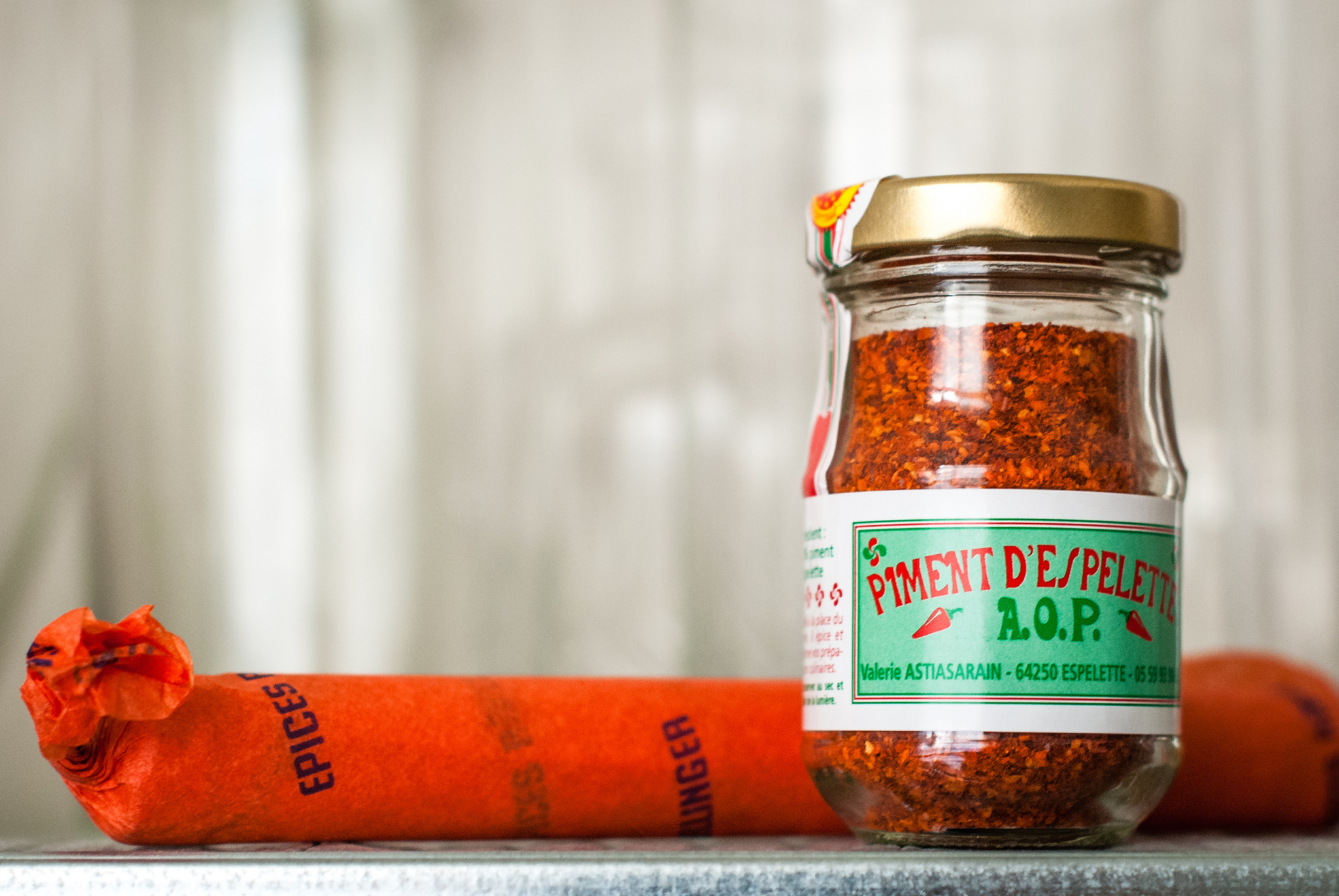Piment d'Espelette
The Awl’s holiday series on flavors and spices.

Image: Stijn Nieuwendijk via Flickr
We’re in our boss’ kitchen, which is tidy and taupe in the way I’d only ever seen in a Martha Stewart Living, my mom’s copy, the one she checked out from the library.
We’re cooking all day, like I’m told we do every Tuesday. The kitchen is a busy, steaming, full-team operation crammed into a space meant for Sunday pie-making with kids. I learn quickly to watch for limbs, stray utensils, aproned bodies. This is my first week—my second day—at a food start-up in New York. My second day of moving past the casseroles and the piles of peas I came from.
Someone asks me to grab the Piment d’Espelette and I nod and smile and say “of course!” even though I have no idea what that is—whether it’s animal, or mineral, or some fancy antique baking mold from the French Revolution. I look around, for what I don’t know: understanding eyes? An early Alexa prototype? There doesn’t seem to be time to fall back on the methodology that got me through yesterday: Quickly Google the fragments of sounds I think I heard (“pee-mon dESS-plett”) then make an informed decision from the top three hits. I open the drawer closest to me. It’s the spices, a lucky guess.
It’s alphabetized, because of course it is, the spices all lined up like library books. More than I’d ever seen together. For a moment I daydream that I’m gliding on a ladder around a spice library, declaring each one I pass “my favorite!” like Belle from the bookshop scene of Beauty and the Beast. I’m only on the Ms: marjoram; mustard, black. It feels like there’s a spice from every continent in here, an announcement that cooking should be the least insular thing you can do, or think about, or write about—a fact we’d forget before scrambling back to it a few years later.
The Ps: Paprika; Piment d’Espelette. I grab the little silver tin and hand it to one of our food editors I just met that morning, who gives me a look that I’m certain says either what took you so long, or is that a Kohls’ tag still stuck to your shirt, or what is stuck in your teeth. She dips two lanky, manicured fingers into the tin and adds a pinch to something on the stove.
I buy a bottle on my way home. I look it up and find out it’s named after a French village in the Basque. The Basque! For a moment I daydream I’m summering in this little French village, that my fingers are lanky, too, that I cook the most perfect food. I learn Piment d’Espelette is the only spice in France with a protected designation of origin—like a fine wine I can’t afford—and that it has notes of “sea brine,” which I try to taste but can’t taste at all. I tell myself that the problem is definitely my palate, not the holiday edition spice catalog copywriting.
I spend the next years calling any dried and ground pepper that isn’t Piment d’Espelette bullshit. Cayenne pepper is bullshit. Red pepper flakes? Bullshit. Why would you use any of those when you could use Piment d’Espelette, a pepper with real …nuance? I decide the key to being a good cook—a Real Food Person—is knowing about the fancy spices. I start making salads sprinkled with Piment d’Espelette in the greasy galley kitchen of my $700-a-month sublet, and using the word nuance in everything I write.
I give Piment d’Espelette to my friends, with a box of Maldon salt, as a housewarming present, the only gift I’ve always thought says more about how cool you are than however much you’d actually like to warm someone’s house. I buy a bottle for my parents and tuck it into their spice drawer one Christmas, next to the 15-year-old paprika that smells like dust. If something was missing in a dish, I’d say what about Piment d’Espelette, have you tried it? at this point completely unaware that this is a very douchey thing to ask; that my spice evangelism is some kind of weird breed of forced—faked—snobbery; that years later, all I’d want are the casseroles and the piles of peas I came from.
I’d still tell you to cook with Piment d’Espelette, of course. You should: Everything about this pepper is delicate—like the drawer I found it in, like that drawer’s kitchen, like that editor’s fingers. I didn’t know what I was saying back then, but it does have nuance. Really it does: It’s got a background heat and a little smokiness that makes it more interesting than most of what’s in your spice drawer. And probably, if your aunt asks you what’s in the potatoes this year and you say Piment d’Espelette, you’ll sound smart and worldly yet humble, like the only reason you want to know these things is so you can pass them on. So she can be asked the same question at book club next month. Maybe you’ll even try it in your casseroles, you genius, the ones with Campbell’s cream of mushroom soup. Because why shouldn’t you do that? You’ll pull it off, I know you will.
